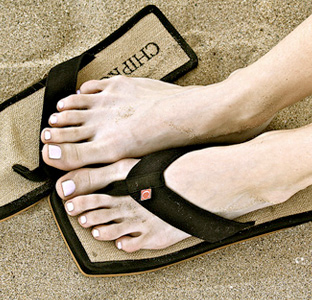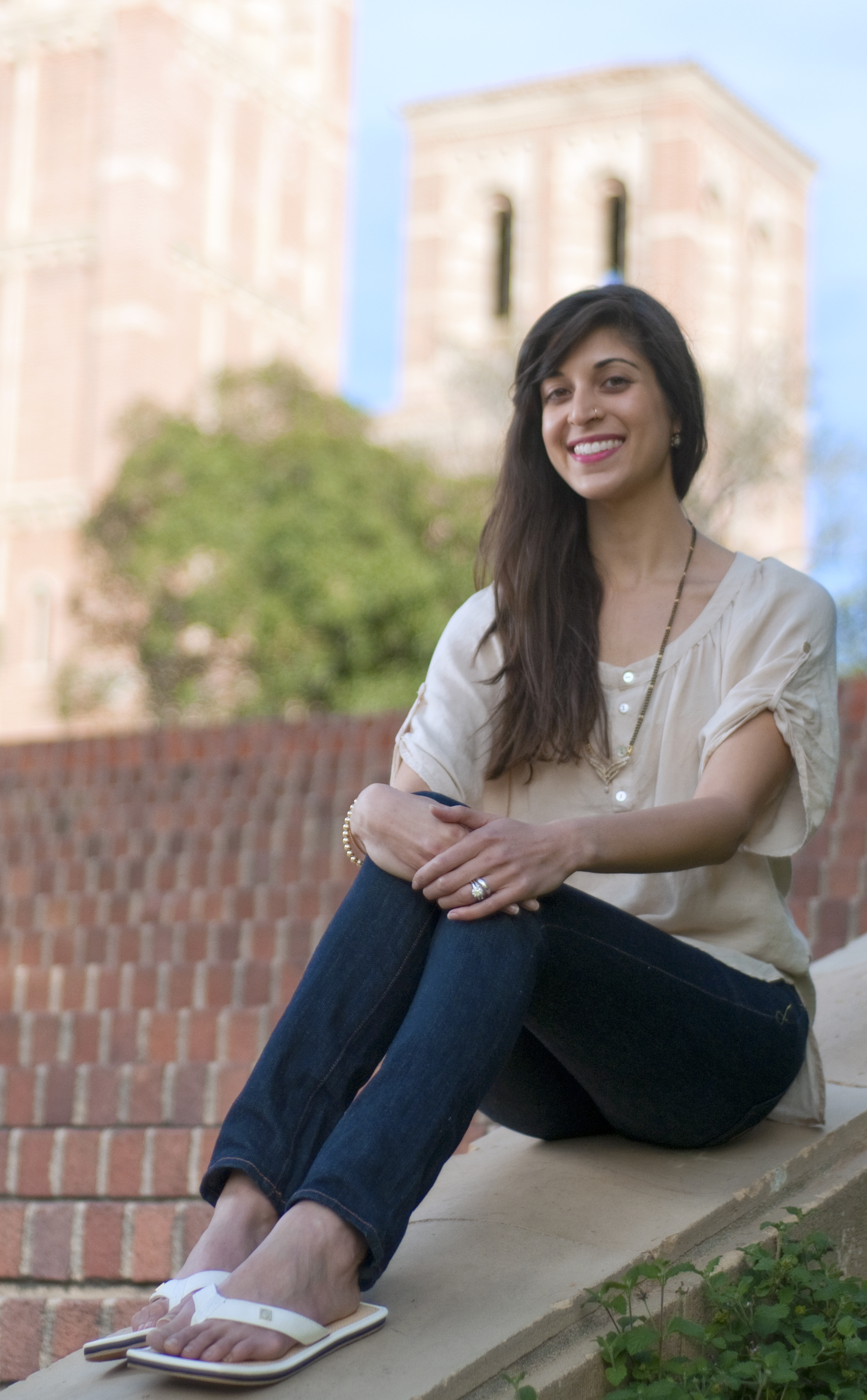
CHIPKOS FOOTWEAR
For every pair of sandals sold, the company and its partner protects 100 square feet of rain forest in Costa Rica.
Priya Dua’s mother nicknamed her “Chipko,” the Sanskrit word meaning “to stick” when she was younger, because of the way the 2004 UCLA alumna used to cling to her mother.
The term was also used to describe a movement in the 18th century where Himalayan villagers literally tied themselves to their trees to prevent deforestation. The movement was where the term “tree hugger” came from.
Little did Dua’s mother know that her daughter would become somewhat of a tree hugger herself, founding a footwear company appropriately named Chipkos to help save the rain forest in Guanacaste, Costa Rica.
The company sells sandals modeled after the Osho sandal style, which is wildly popular in India. The sandals, unusual looking with a square front and back, are made from eco-friendly materials, Dua said.
For every pair of sandals sold, the company and its partner, SaveNature.org, adopts and protects 100 square feet of the rain forest in Guanacaste, Costa Rica.
The company marks a yearlong effort to enter the realm of social entrepreneurship.
After graduating from UCLA, Dua had a few stints working with consultant companies as well as teaching children.
She said she found, however, that she wanted to apply her mathematics and applied science degree to solve a specific, pressing environmental problem.
Priya said she and her husband Ruben Dua, a USC alumnus, had always been interested in environmentalism. They were also inspired by companies that market themselves as pro-environmental, such as Toms Shoes.
After seeing how popular Osho sandals were in India, where they both have roots, Priya and Ruben Dua wondered if they could bring the style to the U.S. and use the sandals as a vehicle to promote environmentalism.
“We started thinking about social entrepreneurship and doing something good, where we not only would provide an amazing product but also provide some tangible solution to some problem,” Priya Dua said.
When she got back to the U.S., Dua started to seriously consider starting her own business.
At first, she was wary of starting a business in an unfamiliar field completely from scratch.
At the same time, she said she never felt discouraged because Los Angeles, where she both went to school and currently lives, embraces entrepreneurship and people who think about things differently.
Her UCLA mathematics and applied sciences degree helped as well.
“What my math degree really taught me was to realize that if there is a problem then there must be a solution, because there is no such thing as an unsolvable problem,” Dua said.
She said there were times when she doubted herself and her goals of helping save the rain forests, especially at the beginning. She also wondered what more she could do to promote environmentalism that had not already been done.
“It’s little steps though,” Dua said. “I think people do care, they just want an avenue to show they care, and I think we’re fulfilling that need.”
After selling its first pair of unique sandals in the summer of 2011, Chipkos has already saved more than 1 million square feet of rain forest, Priya and Ruben Dua both reported.
For the campaign, the husband-and-wife team partnered with
SaveNature.org, a nonprofit group in Priya Dua’s hometown of San Francisco. The organization had a program to save the rain forest in Guanacaste, Costa Rica, in place, but not much publicity and promotion, Dua said.
“They had the logistics already and the backing of the local government, but we realized we could do the marketing and both powerhouse it together,” Dua said.
Norman Gershenz, CEO of SaveNature.org, said the nonprofit has a large number of contacts in Guanacaste, Costa Rica, through the Guanacaste Dry Forest Conservation Fund to ensure the money donated goes directly into not only the adoption but also the conservation of the area protected by the government.
He said the program in Guanacaste, Costa Rica, is the only conservation site in the world he knows of that, in addition to preserving the land, also educates all children within 50 kilometers of the importance of conservation.
“When Priya and Ruben first came to me, I recommended Costa Rica because it is the best place on Earth to support conservation and you’ll never have to worry whether or not the money is going elsewhere,” Gershenz said. “It is thrilling (and) it is chilling to know that the work we’re doing today is going to protect these sites and that it’s going to stay.”
Back in the U.S., the couple now works full-time on Chipkos, but Priya Dua said the company has people from all different industries helping.
That includes university professors for environmental advisory, and business development advisers like Daniel Wang, a graduate student at UCLA’s Anderson School of Management.
Wang joined the team after answering an ad Chipkos put up in Anderson. Wang said he wanted to use his educational training in a grassroots, organic sector, because he is interested in nature and the environment,
Priya Dua said she takes great pride in the grassroots nature of the company. She also said the ultimate goal of their company, however, is to promote a lifestyle rather than a product.
“We’re not saying you have to be this way. It’s like if you think this way and you believe that it’s important, that’s the kind of lifestyle you are choosing to express,” Dua said. “We’re excited not only about the tangible product, but the intangible cause it represents.”
